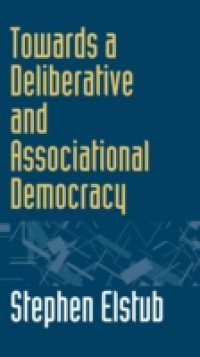In an era where citizens of liberal democracies are becoming increasingly disillusioned, dissatisfied and disenfranchised by the dominant political institutions and decision-making processes in these polities, new ideas of how to deepen democracy, re-engage citizens and enhance decision-making legitimacy are required. This book suggests that a combination of deliberative democracy and associational democracy is both a normatively desirable and an empirically plausible solution to the complex problems that are present in contemporary societies--as well as being compatible with many recent trends in governance. Author Stephen Elstub argues that by combining deliberative with associational democracy, the weaknesses of each model alone are compensated by the other, allowing the key strengths of each to manifest themselves. And he goes further by offering a detailed set of original, institutional requirements for liberal democracies that, if adopted, will enable a deliberative and associational democracy to be realised in practice.

